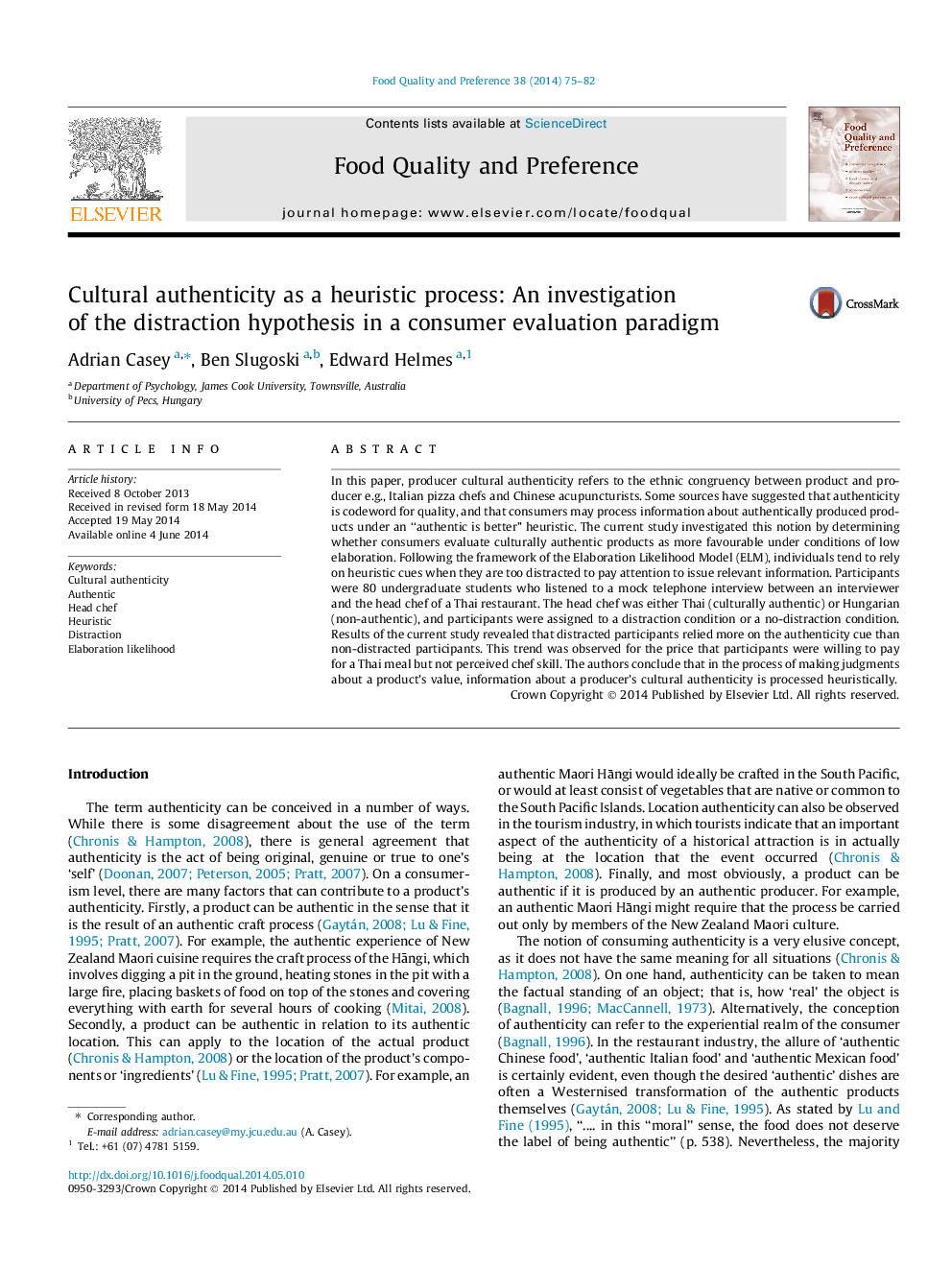| Article ID | Journal | Published Year | Pages | File Type |
|---|---|---|---|---|
| 6261428 | Food Quality and Preference | 2014 | 8 Pages |
â¢We examined the distraction hypothesis for the cultural authenticity cue.â¢Price willing to pay for a Thai meal was affected by the head chef's ethnicity.â¢This was only the case for distracted participants.â¢This study provides evidence that cultural authenticity acts as a heuristic cue.
In this paper, producer cultural authenticity refers to the ethnic congruency between product and producer e.g., Italian pizza chefs and Chinese acupuncturists. Some sources have suggested that authenticity is codeword for quality, and that consumers may process information about authentically produced products under an “authentic is better” heuristic. The current study investigated this notion by determining whether consumers evaluate culturally authentic products as more favourable under conditions of low elaboration. Following the framework of the Elaboration Likelihood Model (ELM), individuals tend to rely on heuristic cues when they are too distracted to pay attention to issue relevant information. Participants were 80 undergraduate students who listened to a mock telephone interview between an interviewer and the head chef of a Thai restaurant. The head chef was either Thai (culturally authentic) or Hungarian (non-authentic), and participants were assigned to a distraction condition or a no-distraction condition. Results of the current study revealed that distracted participants relied more on the authenticity cue than non-distracted participants. This trend was observed for the price that participants were willing to pay for a Thai meal but not perceived chef skill. The authors conclude that in the process of making judgments about a product's value, information about a producer's cultural authenticity is processed heuristically.
